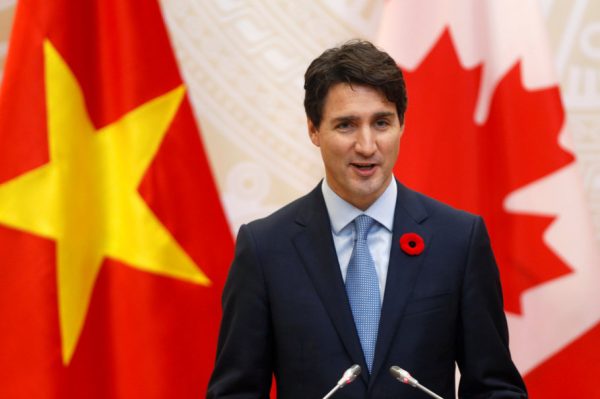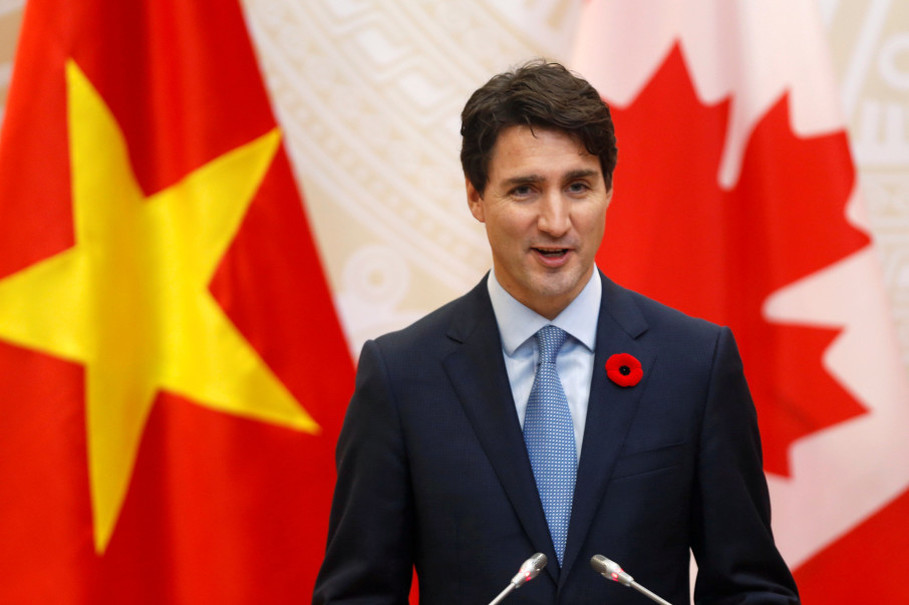
The bad news is that the Labour government has endorsed the Trans-Pacific Partnership Agreement, with the suspension of a limited range of items, at the ministerial and leaders’ meetings in Da Nang, Viet Nam.
The good news is that the meeting failed to conclude the new deal – rebranded the Comprehensive and Progressive Agreement for Trans-Pacific Partnership (CPTPP). There are four outstanding issues. The Canadian government of Trudeau – also elected after the deal was concluded by its predecessor – said it was not going to be rushed into a decision that would have a major impact on its future. Yay, Canada. Why couldn’t the Ardern government do the same?
The ministerial statement released by the TPPA-11 has a catchy new branding for the deal: the Comprehensive and Progressive Agreement for Trans-Pacific Partnership (CPTPP). No easy slogans there! But isn’t it interesting how something so toxic can simply be relabelled ‘progressive’?
The annex lists the provisions being suspended, pending any future re-entry by the US. Toxic items remain in almost every chapter, even if some of the worst are suspended. Their mere presence ensures they will resurface in future agreements. Japan has already proposed some of them in the Regional Comprehensive Economic Partnership (RCEP).
I matched the list against the texts. The biggest relief will be for Pharmac – although the spectre of the US returning remains a threat and those suspended measures will resurface elsewhere.
There is no change to the pro-investor rules or the core investor-state dispute settlement (ISDS) mechanism. A provision that would allow foreign investors to use the TPPA’s ISDS mechanism to enforce contracts for infrastructure or natural resources has been suspended, as has the ability to challenge measures affecting certain financial investments. But investors can still use ISDS to enforce their special rights under the investment chapter, and the delegitimised ISDS process remains intact.
Other chapters that will have sweeping impacts in the future, including the electronic commerce chapter I blogged about last week and the novel annex that requires state-owned enterprises to be purely commercial and not ‘buy Kiwi’, remain unchanged. Future governments will face serious handcuffs in regulating foreign investors and requiring them to process timber or other resources here. These chapters have potential impacts for Kiwibuild and the forestry sector, a digital economy, and the ability to regulate and tax the likes of Amazon.
So, what happens now? There is no timeline for the next meeting of the CPTPP parties. That means there is now time for the new government to conduct in-depth consultations over its proposal to adopt the deal. It also needs to commission the robust analysis that Labour called for in opposition, independent of MFAT and consultants like the NZIER who basically rubber stamped the previous shonky modelling. They need to make sure it uses realistic models that also cover the broader economic implications, especially for jobs and income distribution. If the economics don’t stack up, as Labour said they didn’t with the original TPPA-12, then they have no basis for arguing that the CPTPP should proceed. Their independent review also needs to include non-economic impacts on environment, health, human rights and the Treaty of Waitangi.
But before it does that work to advance a deal they previously refused to ratify, the new government needs to give priority to its proposed full and participatory review of trade policy. All existing and future negotiations must be frozen until that is done.






So Ardern is lying her arse off?
https://www.stuff.co.nz/national/politics/98795622/renamed-tpp-a-damned-sight-better-could-be-in-place-in-a-few-months
In what way? Labour has always maintained that they didn’t support the tpp in its current form and would renegotiate.
pretty much so
Time well and truly for a Financial Transactions Tax.
Suspended = temporarily on hold.
Scrap the whole deal or simply wait for your poison.
Agree with Richard here.
They are fooling us with words only so labour are being hood winked again after the first day in paliament with the “Speakergate deception shabbles.”
Scrap this whole deal !!!!!!! No trust here at all.
The new title sounds as if it was designed by Crosby Textor.
I agree with Jane’s comments quoted above.
I also watched Q+A this morning, and they had some interesting commentators there today, one describing our economic relationship with Mainland China as being ‘colonial’, similar to the one we once had with the Motherland as colonial master (the UK).
Another commentator, who wrote a book on our over-dependence on Mainland China, and how Mainland China has tried to influence our politics and so forth, warned against having such politicians like Jian Yang sit in Parliament. The other economic commentator or expert shared the same concern, saying such persons should not even be allowed to be MPs here, given the past links to the Chinese Communist Party.
The now called CCTPP was intended to offer a counter balance to the trade we do with Mainland China, lessening our dependence on them. Mainland China want to bring in their own regional trade agreement and trading zone.
As it appears, globally, small players like NZ Inc are being pressured to join some agreements of such types in one way or another, in order to stay in the game of trading, and to survive with the kind of economy we have.
So it pays to be ultra careful, what agreement to join, and how it looks like. As NZ Inc has maintained an important role as negotiator, the least we need is some robust discussion about the pros and cons, and give people a chance of some real informed input.
With the poor MSM we have, I cannot see this happen, though. We have the same dilemma with climate change as a major issue facing us all. There is damned little discussion or reporting on this by the MSM. And when people are not being informed, not allowed any say, then they switch off, and sign off as uninformed, ill-informed or simply uninterested citizens.
No wonder then most do nothing, carry on as usual, and the whole shit we have continues. Strange that, maybe it is wanted?!
Not surprised. Labour still has it’s neo-liberals running the ship!
GF… Cullen is in there somewhere along with Robertson.
The old firm won’t let things stray far. It took decades to undo the good set in place in the late 30s.
Jane I speak for a lot of people to say we endorse you 100% and are so grateful for you being there for us all at this sad time of when this new Government are blind and fail to understand that while they (Labour) may feel re-assurred that they have covered every base, they are only a temporary fixture in this mamoth TPP 11 deal we are the sum of all those whom stand to loose for the many years that follow their signing of this shacky agreement that will potantially enslave us and our families for generations following their short exsistance in this political world, so they may cause an enduring affect upon us all for many years following their hurried sgning of this toxic deal.
History may haunt them long after the day they agreed to this deal with global corporations.
We will stand with you always as we know that trouble for usall will come from their folly to sign up to a deal that was already rejected by us all.
For all the feeling on this one – needs to be a referendum – binding at that.
NZ First supporters, please pressure your MPs to insist that the revised TPP (new lipstick, same pig) is put to a binding referendum before being passed by government.
International treaties are the only way a NZ government can bind future governments and make policy that is effectively irreversible (without doing major damage to our international relationships and credibility). If the government thinks the pros in “trade” treaties like TPP are worth the cons, they ought to be willing to present their arguments to the people, and let the people decide.
If “neo-liberalism has failed”, as politicians from both Labour and National have publicly admitted (and the Greens and NZ First have been telling us since it began), then Jane is absolutely right that the new government needs to complete their promised comprehensive review of trade policy before entering into any international agreements on “trade”. If that means ripping up the TPP and starting from scratch, then that’s what needs to happen.
If State owned enterprises must be purely commercial, will we be able to return to income related state housing rents? Current system of market rents and subsidise private landlords is clearly inflationary and is not working.
Comments are closed.